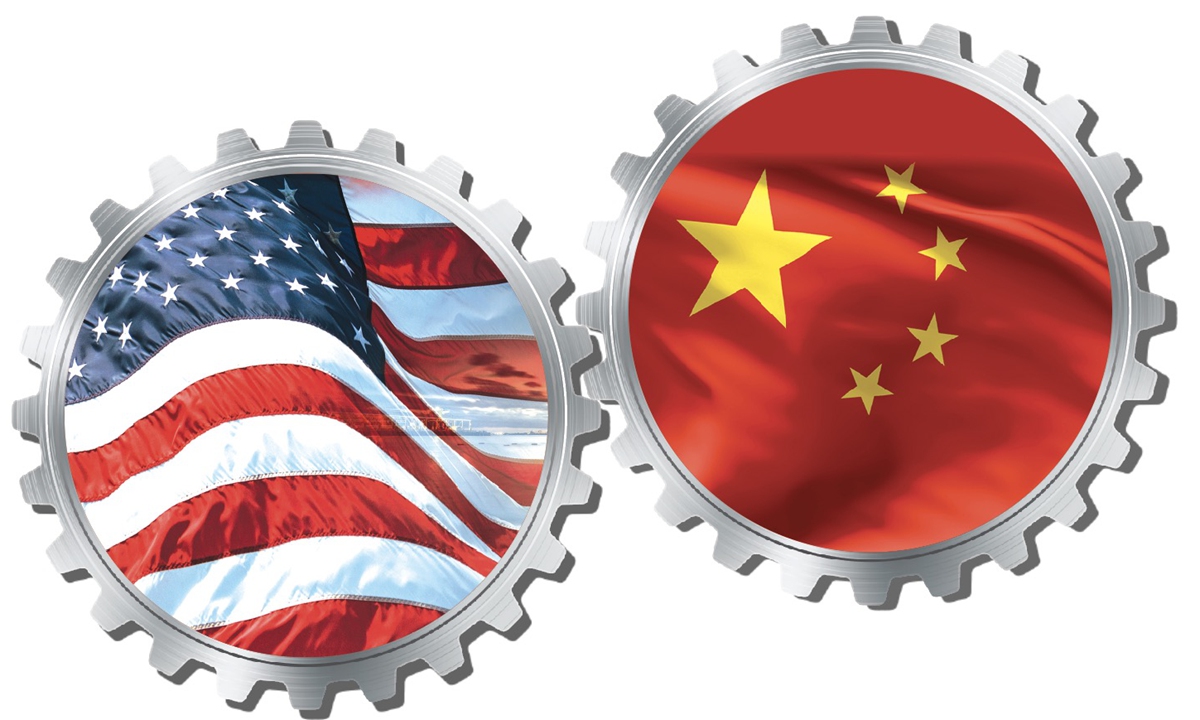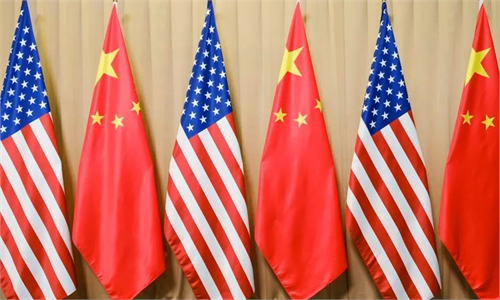Bearing in mind benefit of the world is responsibility, win-win wisdom for China, US: Global Times editorial

China-US Photo: VCG
On the afternoon of November 16, President Xi Jinping met with US President Joe Biden in Lima. President Xi pointed out from his deep observation that the Thucydides's Trap is not a historical inevitability, a new Cold War should not be fought and cannot be won, and containing China is unwise, unacceptable and bound to fail. China and the US, as two major countries in the world, need to bear in mind the benefit of the whole world and inject more certainty and positive energy to today's turbulent world. This statement examines China-US relations from the perspective of a community with a shared future for mankind. It not only reminds China and the US of their responsibilities as major powers, but also reveals the win-win wisdom that China and the US should uphold in their interactions in the context of economic globalization.
This meeting, held just before President Biden left office, sent a clear signal to the outside world that China and the US are determined to stabilize bilateral relations and get them back on track, regardless of the change in the US government. President Xi insightfully listed seven experiences and inspirations that the two countries should draw from the course of their relations, namely, to have a correct strategic perception, match words with actions, treat each other as equals, not to challenge red lines and paramount principles, conduct more dialogue and cooperation, respond to the expectations of the people, and step forward to shoulder the responsibilities of major countries.
These seven experiences directly address the key issues in China-US relations, and serve as a lofty reminder of the "guardrails" and framework that the future US government needs to adhere to when dealing with relations with China. President Biden said that the US does not seek a new Cold War, does not seek to change China's system, does not seek to revitalize its alliances against China, does not support "Taiwan independence," has no intention to have a conflict with China and does not see its Taiwan policy as a way to compete with China. It can be said that both sides have expressed their willingness to deepen cooperation and achieve a smooth transition.
We noticed that the Lima meeting between the Chinese and US presidents received significant attention and positive feedback from international public opinion, indicating that any signal of stability in China-US relations is welcomed by the world. President Xi elaborated on China's position regarding issues such as Taiwan, the South China Sea, economic and technological cooperation, cybersecurity, the Ukraine crisis, and the Korean Peninsula in Lima. President Biden also expressed the US stance on certain regional hotspots and global issues. The Associated Press said "they had much to discuss."
As members of the five permanent members of the UN Security Council and the world's top two economies, the image of China and the US sitting together "bearing in mind the benefit of the whole world" inspires the world. From Bali to San Francisco and then to Lima, this is the third in-person meeting between the leaders of the two countries in four years. It is accompanied by the normalization of dialogue mechanisms in areas such as diplomacy, security, trade, and finance, which not only leads to overall stability in the bilateral relationship but also conveys certainty and positive energy to the world.
Once communication is no longer an obstacle, the biggest barrier to restoring China-US relations lies in Washington's continued perception of China as its "No.1 strategic competitor."
As President Xi has stated, when China and the US treat each other as partner and friend, seek common ground while shelving differences and help each other succeed, their relationship would make considerable progress. But if they regard each other as rivals and pursue vicious competition, they will roil the relationship or even set it back. The ups and downs that China-US relations have experienced over the past few years should clearly prompt reflection on the US side. Using China as a scapegoat in internal political struggles does not help the US resolve its domestic issues; the so-called measures of "decoupling" and "small yard, high fence" ultimately lead to unnecessary losses for both countries, while also hindering global development.
China's positioning on China-US relations has been consistent. China's goal of a stable, healthy and sustainable China-US relationship remains unchanged; its commitment to mutual respect, peaceful coexistence and win-win cooperation as principles for handling China-US relations remains unchanged; its position of resolutely safeguarding China's sovereignty, security and development interests remains unchanged; and its desire to carry forward the traditional friendship between the Chinese and American peoples remains unchanged. These "four unchanged" principles reaffirm China's consistency, continuity, and predictability in its diplomacy toward the new US government.
In the current situation, the common interests of China and the US have not diminished; rather, they have increased. Since the summit in San Francisco, the two countries have made positive progress in areas such as drug control, climate change, artificial intelligence, and cultural exchanges, demonstrating the vast space and potential for bilateral cooperation. During the recent meeting in Peru, the leaders of the two countries also engaged in candid and constructive dialogue on artificial intelligence, affirming the need to maintain human control over the decision to use nuclear weapons. The dimensions of China-US cooperation continue to expand with the growth of technological innovation and human governance issues, and opportunities for the two major powers to extend their cooperation list and enlarge the "cake" of collaboration in key areas will increase.
The stable development of China-US relations concerns not only the people of both countries but also the future and destiny of humanity. The world generally hopes to see a positive trend in the stabilization and improvement of China-US relations, with peaceful development and mutual benefit established as the backdrop of our times. Bearing in mind the benefit of the people and the world should be a shared responsibility of China and the US.

